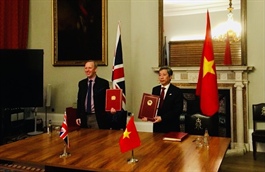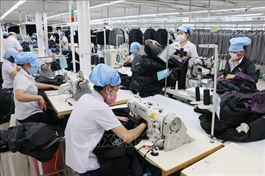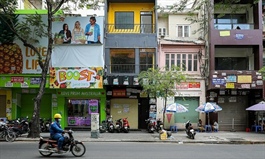Vietnam’s top 8 economic events in 2020
Vietnam’s top 8 economic events in 2020
As the world is struggling with unprecedented crisis from the Covid-19 pandemic, Vietnam has emerged as one of the most successful stories by putting the deathly virus under control and boosting strong economic growth.
Hanoitimes selected Vietnam's top 8 economic events in 2020, the most successful year of Vietnam over the past five years. The country is among handful countries in the world delivering a positive growth amidst the Covid-19 pandemic.
1. Among world’s fastest growing economies
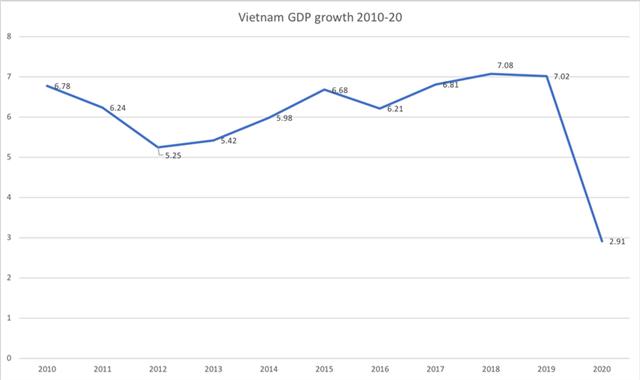
Data: GSO. Chart: Ngoc Thuy.
|
Vietnam’s GDP in 2020 grows at an impressive pace of 2.91%, the lowest in a decade but among the world’s highest and the only economy in the Southeast Asia with a positive economic growth.
“As the Covid-19 situations remains complicated around the world, such a positive economic growth could be seen as a major achievement of Vietnam,” stated the General Statistics Office.
Prime Minister Nguyen Xuan Phuc said the result showcased Vietnam’s success in pursuing the dual target of both containing the pandemic and boosting economic recovery.
For next year, the Vietnamese government targets the GDP growth to rebound to 6.5% in 2021, 0.5 percentage points higher than the goal set by the National Assembly at 6%.
Such forecast remains in line or even modest compared to forecast from international organizations such as the IMF (6.5%), World Bank (6.8%) S&P (10.9%), or HSBC (8.1%), which showcase a bright outlook for the Vietnamese economy following a difficult year.
2. A decade-high of disbursement of public investment
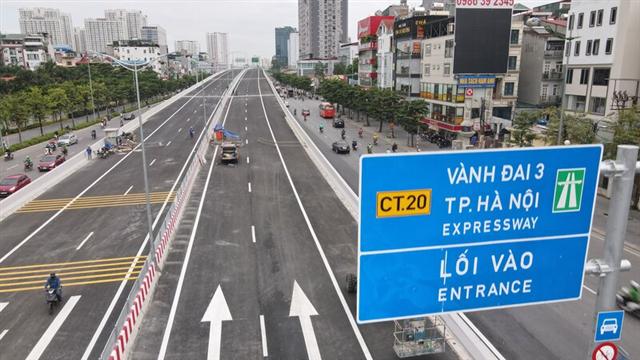
Newly-built Ring Road No.3 (section Mai Dich – South Thang Long) was opened for traffic on October 11. Photo: Pham Hung.
|
Seen as one of the key solutions to boost economic recovery after the pandemic, the Vietnamese government targets to realize the full amount of VND470.6 trillion (US$20.32 billion) to aid economic recovery. The progress for this year is estimated at 91.1% of the target, or VND466.6 trillion (US$20.24 billion), up 34.5% year-on-year.
In a meeting late August, Mr. Phuc warned officials of facing disciplinary actions if their ministries and localities fail to realize their respective disbursement targets of public investment funds for this year.
On this issue, Minister of Planning and Investment Nguyen Chi Dung also said the government is willing to transfer state capital from projects whose disbursement is lagging behind those with faster pace.
Among measures to boost the disbursement performance, Mr. Dung said both central and local governments would hold monthly meetings to address related issues.
While the result still falls short of the target, it remains the highest rate in the 2011-20 period and contribute a big part to a positive economic growth this year.
3. New laws and regulations approved to support business development
This year, the National Assembly has approved 17 laws, including some that are expected to change Vietnam’s business landscape for the better.

The National Assembly on July 17 approved the revised Law on Investment with the endorsement of 92.34% of its deputies present. Photo: Quochoi.vn
|
The business community expected the revised Investment Law and Law on Enterprises, which are set to take effect in early 2021, will be a major step in making it easier for market entry and creating favorable conditions for enterprises doing businesses in Vietnam.
Meanwhile, the ratification of the long-awaited Public-Private Partnership (PPP) Law will address the issue of lacking a unified legal framework governing PPP in Vietnam similar to that seen in some of its regional peers (e.g. the Philippines, Thailand).
Such issue has been the main factor for Vietnam’s infrastructure sector growth potential to be capped at 6.1% per year through 2019, despite having one of the fastest growing economies in the world, stated Fitch Solutions, a subsidiary of Fitch Group, noted.
The Securities Law, on the other hand, is expected to be what the local stock market needs to get upgraded to emerging status and solidfy its positive uptrend in the coming time.
4. Devastating Covid-19 impacts on businesses
In 2020, 101,700 enterpirses were forced to suspend operation temporarily and permanently, up 13.9% year-on-year and was the highest figure in the past five year, especially those operating in services, real estate, tourism, and logistics.
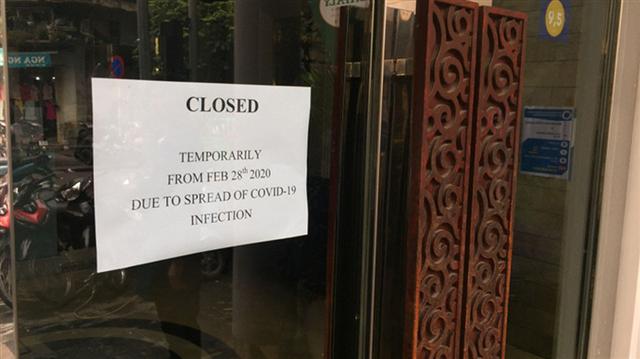
Covid-19 causes severe impacts on the local economy.
|
Vietnam’s aviation industry, following years of two-digit growths, has now been in a survival mode and could only fully recover by 2023 at the earliest.
The national flag carrier Vietnam Airlines reported losses of over VND15 trillion (US$650.6 million) in this year, while Vietjet Air, Bamboo Airways or Pacific Airlines are also predicted to get huge losses.
Tourism is also among the hardest-hit sectors by the Covid-19 pandemic, with the number of foreign tourists coming to Vietnam plunges by 80% and domestic tourists of nearly 50%.
5. Government rolls out supporting programs
To date, the government has rolled out supporting programs such as a credit aid package worth VND300 trillion (US$12.87 billion), including a VND180-trillion (US$7.63 billion) fiscal stimulus package in forms of delay of payment of value-added tax, corporate income tax, and a financial support package for vulnerable people worth VND62 trillion (US$2.7 billion).
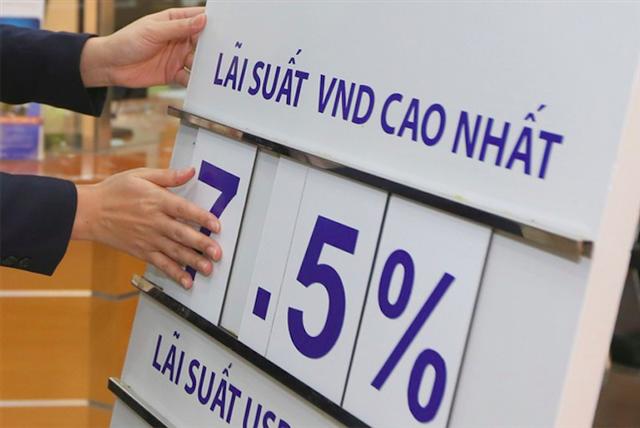
Vietnam's central bank has lowered its interest rate cap three times by a combined of 1.5-2 percentage points per annum, which is the largest cut in the region.
|
Since the beginning of the year, the State Bank of Vietnam, the country’s central bank, has lowered its interest rate cap three times by a combined of 1.5-2 percentage points per annum, which is the largest cut in the region.
As the pandemic is showing no sign of slowing down, the government has already planned for further fiscal support.
6. Booming stock market
At a time when the Vietnamese government has initially contained the Covid-19 pandemic and is now focusing on economic recovery efforts, the stock market, given its characteristic as one of the most flexible investment channels, has emerged as attractive option for investors amid the current low interest rate trend at the moment.
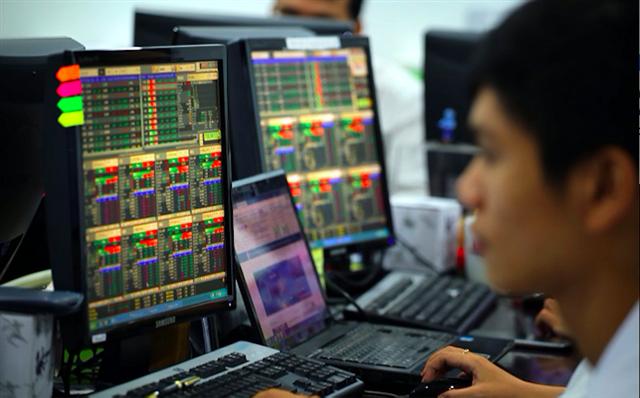
Stock market remains an attractive option for local investors. Photo: Viet Dung.
|
Since the benchmark Vn-Index plunged to its rock-bottom in March with a 25% slump, it has been on the steady rise and stood at 1,099.49 points at market close yesterday [December 29], an increase of 0.53 points (0.27%) against the previous day, which is around 9% below its all-time high of 1,204 in April 2018.
The local stock markets also remained fourth among the world’s best 10 performing stock markets in the August-October period.
As of November 30, total market capitalization on Vietnam’s stock market stood at VND6,110 trillion (US$265.11 billion) accounting for 101.33% of the GDP and exceeding the 70% of the GDP set for the 2011-20 period.
7. Speeding up global integration process

Prime Minister Nguyen Xuan Phuc and Minister of Industry and Trade Tran Tuan Anh at the RCEP signing ceremony on November 15. Photo: Quang Hieu.
|
On the back of the signing of the Comprehensive and Progressive Agreement for Trans-Pacific Partnership (CPTPP) in 2019, Vietnam has continued its efforts towards global integration with the signing of strategic trade deals, including the EU-Vietnam Free Trade Agreement (EVFTA), the
Regional Comprehensive Economic Partnership (RCEP), and most recently the UK-Vietnam Free Trade Agreement (UKVFTA).
A range of multi- and bi-lateral trade agreements will help Vietnam diversify export markets and trading partners, which is one of the best ways to minimize risks from excessive dependence on a specific trading partners which Covid-19 has made this risk apparent.
8. Covid-19 accelerates Vietnam’s digital transformation
In a Covid-19 year, Vietnam has an addition of 13,000 tech firms, equivalent to 28% of the total in the past 30 years.

Prime Minister Nguyen Xuan Phuc and government's leaders at the launch of the national public services portal. Photo: Thong Nhat.
|
Prime Minister Nguyen Xuan Phuc in June approved the national digital transformation program until 2025, with vision to 2030, aiming to realize the ambitious goals of having digital government, economy and society.
The digital economy in Việt Nam is predicted to reach US$43 billion by 2025. Hanoi and Ho Chi Minh City have been rated among seven major cities with fast digital economic development in the Southeast Asian region.
By late November, three major mobile carriers in Vietnam have simultaneously launched the commercial pilot of the 5G network, in turn taking the country among front-runners in the race for 5G application.
So far, the government has put into operation a number of IT systems under the e-government platform, including the e-cabinet system, the national public services portal, the national reporting system and the government operations center, which help save over VND8.5 trillion (US$370 million) per year for the state budget.
Minister of Information and Communications Nguyen Manh Hung attributed the Covid-19 to a major boost for Vietnam to accelerate its digital transformation process.



